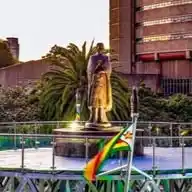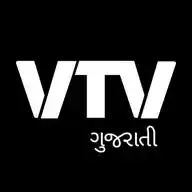
Zim Global Media News
835 subscribers
About Zim Global Media News
Award Winning Online Media House. We offer up to the minute, verified news updates… ——————————————— *Zim Global Media News 🗞️* an Afrocentric Voice *VISIT OUR WEBSITE FOR MORE…* https://www.zimglobalmedia.co.zw *FOLLOW OUR WHATSAPP CHANNEL:* https://whatsapp.com/channel/0029VaCpLzu2f3EBYPSgI93M *FOLLOW | LIKE | ENGAGE ON US OUR FB PAGE:* https://www.facebook.com/Takasununguka?mibextid=LQQJ4d *FOLLOW US ON X (TWITTER) HANDLE:* https://x.com/takasununguka?s=21 *FOLLOW US ON INSTAGRAM:* https://www.instagram.com/invites/contact/?i=bxnyxcios0x2&utm_content=232l705 *JOIN OUR WHATSAPP NEWS GROUPS:* GROUP1️⃣ https://chat.whatsapp.com/BaPrEZeOPQH8kssXmHZAhN GROUP2️⃣ https://chat.whatsapp.com/HP8qsF2lg2LJTpLi3JRik0 GROUP3️⃣ https://chat.whatsapp.com/I6JV7d4e0b41vKyKojLx4Y GROUP4️⃣ https://chat.whatsapp.com/IKpy1vhLFLfAOuCINhUZVu ————————————————
Similar Channels
Swipe to see more
Posts

2nd Post Cabinet Media Briefing - February 2025 Government Updates Nation on Food Security, Drug Abuse, and International Relations By Takasununguka Ziki 18 February, 2025 | Zim Global Media News 🗞️ FOLLOW OUR CHANNEL: https://whatsapp.com/channel/0029VaCpLzu2f3EBYPSgI93M Harare – In the second Post Cabinet Media Briefing of 2025, Government has provided crucial updates on various national initiatives, including the ongoing Food Deficit Mitigation Programme, responses to drug and substance abuse, and international cooperation agreements among others. The briefing, highlighted the government's commitment to addressing pressing issues affecting the nation. The Minister of Public Service, Labour and Social Welfare, Honourable Edgar Moyo, presented an update on the Food Deficit Mitigation Programme. The government has been proactive in addressing food insecurity, with over 90% of the total grain distributed to vulnerable households. The third phase of food distribution, which commenced on November 1, 2024, concluded on January 31, 2025, successfully assisting deserving families across the nation. Currently, the government is in the midst of the fourth phase of food distribution, which began on February 1 and will run until March 31, 2025. As part of this initiative, the government will conduct its First Round Crop Assessment, with early indications suggesting a positive outlook for the upcoming harvest. This proactive approach aims to ensure that food security remains a top priority for the government, particularly in light of the challenges faced by many households. Cabinet also reviewed the National Drug and Substance Abuse Response, covering the period from September 1, 2024, to January 31, 2025. Presented by the Minister of Skills Audit and Development, Honourable Paul Mavima, the report highlighted significant strides made in combating drug abuse across the country. During the review period, law enforcement destroyed 79 illegal drug bases, resulting in the arrest of 9,527 individuals, including 616 suppliers and 8,911 end users. Notably, international collaboration led to the arrest of three individuals in Zambia, who were found in possession of 23 kilograms of dagga. Furthermore, the Medicines Control Authority of Zimbabwe conducted 117 inspections, leading to the closure of five non-compliant premises. The government has also prioritized education and awareness, with over 155,000 youths benefiting from vocational training programs. Drug and substance abuse education has been integrated into school curricula, reaching more than 7 million learners. Various ministries, including the Ministry of Women Affairs and the Ministry of Sport, have engaged the public through awareness campaigns, reaching hundreds of thousands with drug abuse prevention messages. In a bid to enhance rehabilitation efforts, three new centers have been established in Victoria Falls, Harare, and Kwekwe. The government continues to encourage private sector investment in rehabilitation initiatives, emphasizing the need for community support in addressing substance abuse. In a move to foster regional collaboration, the cabinet approved Memoranda of Understanding between Zimbabwe, Rwanda, and South Africa concerning youth affairs. The agreements aim to enhance cooperation in various areas, including life skills training, entrepreneurship development, and health promotion programs. Minister Ziyambi Ziyambi, Chairperson of the Cabinet Committee on Legislation, emphasized the importance of these agreements in uplifting the lives of young people and disadvantaged communities. The initiatives are designed to reduce poverty, promote sustainable nation-building, and decrease youth criminal activities, ultimately contributing to a more peaceful and prosperous region. Cabinet also approved the ratification of the SADC Inter-State Protocol on the Transfer of Sentenced Offenders, a move that demonstrates Zimbabwe's commitment to international cooperation and adherence to global norms. The protocol facilitates the transfer of sentenced offenders to serve their remaining sentences in their home countries, thereby strengthening diplomatic relations within the Southern African Development Community (SADC). This decision, signed by the President His Excellency Dr. E.D. Mnangagwa on behalf of the government in August 2019, showcases Zimbabwe's dedication to enhancing its legal frameworks and improving its collaboration with neighboring countries on justice matters. The cabinet received a report on Zimbabwe's participation in the Africa Prosperity Dialogues held in Accra, Ghana, from January 30 to February 1, 2025. The event brought together representatives from 46 African countries, including heads of state and business leaders, to discuss trade, economic integration, and infrastructure development. Key discussions focused on fostering intra-Africa trade, industrialization, and innovative financial strategies to address economic challenges. Zimbabwe's involvement in this dialogue underscores its commitment to regional collaboration and economic development. In addition to regional initiatives, the cabinet reviewed the President's participation in the African Union’s 38th Ordinary Session held in Addis Ababa, Ethiopia, from February 15 to 16, 2025. The session, themed "Justice for Africans and People of African Descent, Through Reparations," saw the President engage with other leaders on pressing continental issues, including peace and security in the region. Notably, President Mnangagwa's address emphasized the need for collaborative efforts to address the conflicts in Sudan and the Democratic Republic of Congo (DRC), advocating for inclusive dialogue and humanitarian assistance. The post cabinet media briefing reflects Zimbabwe's proactive approach to addressing food security, combating drug abuse, and enhancing international cooperation. With a focus on youth empowerment and regional collaboration, the government aims to build a more resilient and prosperous nation. As these initiatives unfold, the commitment of various ministries and stakeholders will be vital in achieving the desired outcomes for the people of Zimbabwe. ——————————————— Zim Global Media News 🗞️ an Afrocentric Voice https://www.zimglobalmedia.co.zw ———————————————

https://youtu.be/g3ViBtzhvd0?si=MRfQAcB9hSB9nw-J *WATCH…*

Cabinet Unveils Key Measures to Boost Agriculture, Tax Compliance, and Youth Empowerment By Takasununguka Ziki FOLLOW OUR CHANNEL: https://whatsapp.com/channel/0029VaCpLzu2f3EBYPSgI93M 13 February, 2025 | Zim Global Media News 🗞️ Harare - In a significant move to address critical national issues, the Cabinet appraised the nation on a series of measures aimed at bolstering food security, enhancing tax compliance, and empowering the nation’s youth. The Cabinet announced that the current grain stock at the Grain Marketing Board (GMB) is sufficient to meet the needs of rural communities until the next harvest. This assurance comes as a relief to millions of Zimbabweans who rely on government-subsidized grain for their daily sustenance. The government has been closely monitoring grain imports, stock levels at millers, import prices, and sources to eliminate arbitrage opportunities. This vigilance is part of a broader strategy to stabilize grain prices and ensure that all citizens have access to affordable food. Government is confident that the current grain reserves will sustain rural communities until the next harvest season. This announcement is particularly significant given the challenges posed by climate change and erratic rainfall patterns, which have affected agricultural productivity in recent years. The government’s proactive approach to grain management is expected to mitigate the risk of food shortages and price volatility. In a bid to boost agricultural productivity, the Cabinet approved the 2024/2025 Summer Season Plan, which aims to increase cereal production to 3.2 million metric tonnes, up from 744,000 metric tonnes produced last season. This ambitious target reflects the government’s determination to achieve self-sufficiency in food production and reduce reliance on imports. Preliminary data indicates that about 99% of the targeted maize area for this summer season has already been planted. This marks a significant improvement compared to previous years, thanks to favorable weather conditions and the government’s support for farmers through inputs such as seeds, fertilizers, and irrigation equipment. Government announced that it was ptimistic about the upcoming harvest. The high percentage of planted maize area is a testament to the hard work of our farmers and the effectiveness of government’s agricultural policies. The government’s focus on increasing cereal production is expected to have a ripple effect on the economy, creating jobs, reducing food prices, and improving the livelihoods of rural communities. In a groundbreaking move, the Cabinet announced that the use of electronic money will now be compulsory for all businesses. This measure is part of a broader strategy to enhance tax compliance, formalize the informal sector, and increase government revenue. The new policy will be implemented through the following key initiatives: Introduction of a Compulsory Tax Payment System: The government will introduce a compulsory tax payment system to ensure that every eligible taxpayer pays their fair share of taxes. This system will leverage technology to streamline tax collection and reduce leakages. Establishment of a Domestic Interagency Team: A Domestic Interagency Team will be established to ensure compliance with tax laws in the informal sector. This team will work closely with local authorities, law enforcement agencies, and financial institutions to identify and address non-compliance. Vendor Licensing Framework: A new framework will be introduced to ensure that all vendor licensing by local authorities is done in consultation with the Central Government. It will be mandatory for all vendors to be issued with Point of Sale (POS) machines and to open bank accounts upon registration or licensing. The mandatory use of electronic money is a game-changer for our economy,” said the Minister of Finance. “It will not only enhance tax compliance but also promote financial inclusion and transparency.” The Cabinet also announced that the 2025 National Youth Day Celebrations will be held at Barbourfields Stadium in Bulawayo from February 20 to February 21. The event, which will run under the theme “Empower Youth, Secure the Future,” is expected to attract 20,000 youths from across the country’s ten provinces. The main event on February 21 will feature speeches, performances, and exhibitions showcasing the talents and achievements of Zimbabwean youth. In addition, youths in all provinces will be able to follow the proceedings in real-time at designated vocational training centers and institutions of higher learning. The National Youth Day Celebrations are an opportunity to celebrate the potential of young people and to reaffirm government’s commitment to youth empowerment. The government has also pledged to increase funding for youth programs, including vocational training, entrepreneurship, and access to education. These initiatives are expected to equip young people with the skills and resources they need to contribute to the country’s development. The decisions made during Tuesday’s Cabinet meeting reflect the government’s determination to address pressing national issues and lay the foundation for sustainable development. The focus on food security, tax compliance, and youth empowerment is particularly timely, given the challenges posed by climate change, economic instability, and high youth unemployment. As Zimbabwe prepares for the 2025 National Youth Day Celebrations, there is renewed hope that the country’s young people will play a central role in shaping its future. By empowering youth and addressing their needs, the government is not only investing in the next generation but also securing the long-term prosperity of the nation. While challenges remain, the government’s proactive approach and commitment to inclusive growth offer a promising path forward. As the nation looks ahead to the next harvest, the implementation of new tax policies, and the celebration of its youth, there is much to be hopeful for. ——————————————— Zim Global Media News 🗞️ an Afrocentric Voice https://www.zimglobalmedia.co.zw ———————————————

JUST IN— President Mnangagwa Reaffirms Commitment to Constitutional Term Limits By Takasununguka Ziki 17 February, 2025 | Zim Global Media News 🗞️ FOLLOW OUR CHANNEL: https://whatsapp.com/channel/0029VaCpLzu2f3EBYPSgI93M State House, Harare – In a significant and reassuring address to editors of state and private media outlets, His Excellency the President Dr. Emmerson Dambudzo Mnangagwa has reiterated his unwavering commitment to upholding the Constitution of Zimbabwe, firmly stating that he will not extend his tenure beyond the stipulated term limits. The President made these remarks during an interactive session with editors from various media organizations at State House in Harare earlier today. The engagement, which brought together senior journalists, editors and media executives, was part of the President’s ongoing efforts to foster transparency, accountability, and open dialogue between the government and the Fourth Estate. President Mnangagwa’s remarks come at a time when speculation about potential constitutional amendments to extend presidential term limits has been a topic of heated debate across the country. President Mnangagwa’s address was both candid and resolute. “I have always said that I am a product of the Constitution, and I will operate within its confines,” he declared. “The Constitution is the supreme law of the land, and it is my duty to respect and uphold it. I will not go beyond my stipulated term in office.” This statement is seen as a direct response to growing concerns among citizens, opposition parties, and civil society organizations about the possibility of constitutional changes that could allow for an extension of presidential term from 2028 to 2030 and or even beyond. The President’s reassurance is expected to calm anxieties and reinforce confidence in Zimbabwe’s democratic processes. The current Constitution, adopted in 2013, limits the presidency to two five-year terms. President Mnangagwa, who assumed office in November 2017 following the resignation of former President Robert Mugabe, was elected in 2018 and is in his second and last term that began after the grand ZANU PF Win in the 2023 elections. His reaffirmation of adherence to term limits has been widely welcomed as a positive step toward strengthening Zimbabwe’s democratic institutions. During the interactive session, President Mnangagwa also emphasized the importance of unity and collective effort in addressing the challenges facing the nation. He highlighted the government’s ongoing efforts to revive the economy, create jobs, and improve the standard of living for all Zimbabweans. “Our focus remains on economic development and the well-being of our people,” he said. “We cannot achieve these goals if we are divided. It is imperative that we work together, as one nation, to overcome the obstacles before us.” The President added. The President’s call for unity comes amid a polarized political landscape, with opposition parties and civil society groups often critical of the government’s policies and governance style. By engaging directly with media editors, President Mnangagwa demonstrated a willingness to listen to diverse perspectives and foster a culture of open dialogue. The interactive session also provided an opportunity for the President to address issues related to media freedom and the role of the press in a democratic society. President Mnangagwa acknowledged the critical role of the media in holding leaders accountable and shaping public opinion. “A free and independent media is essential for the growth and development of our democracy,” he said. “As journalists, you have a responsibility to report truthfully and objectively, without fear or favor. My government is committed to creating an environment where the media can operate freely and without hindrance.” He added. However, the President also urged journalists to exercise their freedom responsibly, emphasizing the need for accurate and balanced reporting. “While we respect your right to freedom of expression, we also expect you to uphold the highest standards of professionalism and integrity,” he added. Media representatives present at the engagement welcomed the President’s remarks but called for concrete actions to address longstanding challenges faced by the industry, among them harmonization of media and state laws, limited access to information, and economic constraints. President Mnangagwa’s reaffirmation of his commitment to term limits has elicited mixed reactions from various quarters of society. President Mnangagwa’s address at State House marks a significant moment in Zimbabwe’s political landscape. By publicly reaffirming his commitment to constitutional term limits, the President has sent a clear message about his dedication to democratic principles and the rule of law. As Zimbabwe continues on its path toward economic recovery and political stability, the role of leadership in fostering trust and unity cannot be overstated. President Mnangagwa’s engagement with the media and his assurances on term limits are steps in the right direction, but the journey toward a truly inclusive and prosperous Zimbabwe remains a collective effort. In the words of the President himself, “The future of our nation lies in our hands. Let us work together, with integrity and determination, to build a Zimbabwe we can all be proud of.” As the nation reflects on these developments, one thing is clear: the commitment to constitutionalism and democratic governance is not just the responsibility of leaders but of every citizen. The road ahead may be challenging, but with unity and shared purpose, Zimbabwe can overcome its challenges and realize its full potential. ——————————————— Zim Global Media News 🗞️ an Afrocentric Voice https://www.zimglobalmedia.co.zw ———————————————

African Leaders Convene in Addis Ababa for the 38th AU Summit… …Call for Justice, Reparations By Takasununguka Ziki FOLLOW OUR CHANNEL: https://whatsapp.com/channel/0029VaCpLzu2f3EBYPSgI93M 15 February, 2025 | | Zim Global Media News 🗞️ Addis Ababa, Ethiopia – The African Union (AU) headquarters in Addis Ababa is once again the epicenter of continental diplomacy as leaders from across Africa gather for the 38th Ordinary Session of the Assembly of Heads of State and Government. Among the distinguished attendees is the Southern African Development Community (SADC) Chairperson, His Excellency the President Dr. Emmerson Dambudzo Mnangagwa of Zimbabwe, who joins his counterparts to deliberate on pressing issues affecting the continent. This year’s summit, held under the theme “Justice for Africans and People of African Descent Through Reparations,” underscores the growing momentum for addressing historical injustices and their lingering effects on the African continent and its diaspora. The official opening ceremony, held on February 14, 2025, was a vibrant display of African unity and cultural pride. Dignitaries, including heads of state, senior government officials, and development partners, filled the plenary hall of the AU headquarters, adorned with the flags of member states. The atmosphere was charged with a sense of purpose as leaders prepared to tackle one of the most contentious and transformative topics in recent AU history: “reparations for centuries of exploitation, slavery, and colonialism.” The choice of this year’s theme reflects a growing consensus among African leaders and civil society that the time has come to confront the legacies of historical injustices. The transatlantic slave trade, colonialism, and neocolonial exploitation have left deep scars on the continent, contributing to systemic poverty, underdevelopment, and social inequality. The AU’s focus on reparations signals a bold step toward addressing these issues and seeking redress for the African people. In his opening remarks, AU Commission Chairperson Moussa Faki Mahamat emphasized the moral and historical imperative of the reparations agenda. “The wounds of slavery and colonialism have never fully healed,” he declared. “The wealth extracted from Africa built empires and fueled industrialization elsewhere, while leaving our people in chains and our economies in ruins. Justice demands that we confront this history and seek reparations for the crimes committed against our ancestors and their descendants.” The summit’s theme has resonated deeply across the continent and beyond. In recent years, movements advocating for reparations have gained traction, with Caribbean nations and African diaspora communities joining the call for accountability. The AU’s decision to prioritize this issue at the highest level of continental governance marks a significant milestone in the global reparations movement. As the current chairperson of SADC, President Emmerson Mnangagwa is playing a pivotal role in shaping the regional bloc’s contributions to the summit. Zimbabwe, under President Mnangagwa’s leadership, has been a vocal advocate for African unity and self-determination. President Mnangagwa has reiterated the importance of solidarity among African nations in the pursuit of justice. “The quest for reparations is not merely a matter of financial compensation,” President Mnangagwa has stated. “It is about restoring the dignity of the African people and reclaiming our rightful place in the global community. We must stand together, as one Africa, to demand accountability from those who have profited from our suffering.” He added. President Mnangagwa also highlighted the need for African nations to strengthen their economies and institutions as part of the broader reparations agenda. “While we seek justice from external actors, we must also look inward and address the challenges that hinder our progress. Corruption, poor governance, and lack of unity are obstacles that we must overcome to achieve true liberation.” The President added. Leaders are exploring the creation of a unified African position on reparations, which would serve as the basis for negotiations with former colonial powers and other stakeholders. This framework would outline the specific forms of reparations sought, including financial compensation, debt relief, and the return of stolen cultural artifacts. The AU is seeking to strengthen ties with the African diaspora, recognizing their critical role in the reparations movement. Plans are underway to establish a diaspora fund to support development projects across the continent. The summit is also addressing contemporary forms of exploitation, such as unfair trade practices and the extraction of Africa’s natural resources by foreign entities. Leaders are calling for greater transparency and equity in global economic relations. A key resolution under consideration is the establishment of educational programs to teach African history and the impact of slavery and colonialism. This initiative aims to foster a sense of pride and identity among African youth. The 38th AU Summit is not only a continental event but also a global call to action. The reparations movement has gained international attention, with growing support from scholars, activists, and policymakers worldwide. The AU’s leadership on this issue has the potential to reshape global narratives about justice, equality, and historical accountability. As the summit continues, all eyes are on Addis Ababa. The decisions made here will have far-reaching implications for Africa’s future and its place in the world. For President Mnangagwa and his fellow leaders, the challenge is clear: to turn the rhetoric of justice into a reality for the African people. In the words of AU Chairperson Moussa Faki Mahamat, “This is not just a summit; it is a turning point in our history. Let us seize this moment and build a future worthy of the sacrifices of our ancestors.” ——————————————— Zim Global Media News 🗞️ an Afrocentric Voice https://www.zimglobalmedia.co.zw ———————————————

President Ignites 2025 Cabinet with Renewed Focus on Service Delivery, Attainment of Vision 2030 By Takasununguka Ziki FOLLOW OUR CHANNEL: https://whatsapp.com/channel/0029VaCpLzu2f3EBYPSgI93M 12 February, 2025 | Zim Global Media News 🗞️ Harare – In a resounding call to action, His Excellency President Dr. E. D. Mnangagwa officially opened the 2025 Cabinet year with a strong emphasis on service delivery, accountability, and the relentless pursuit of Vision 2030. The President’s address, delivered at the first Cabinet meeting of the year, underscored the government’s commitment to transforming the lives of Zimbabweans through efficient governance, economic development, and people-centered policies. The meeting, attended by Vice Presidents Hon. Gen. (Rtd.) Dr. C. G. D. N. Chiwenga and Hon. Col. (Rtd.) K. C. D. Mohadi, along with senior government officials, marked the beginning of a new chapter in Zimbabwe’s journey toward prosperity. President Mnangagwa’s speech was a clarion call for unity, diligence, and a renewed sense of purpose among Cabinet members as they work to address the nation’s challenges and seize its opportunities. At the heart of the President’s address was the reaffirmation of Zimbabwe’s Vision 2030, a national blueprint aimed at transforming the country into an upper-middle-income economy by the end of the decade. President Mnangagwa reminded Cabinet members of their duty to prioritize outcomes that positively impact the lives of citizens, emphasizing that no one and no place should be left behind in the nation’s development agenda. “The mandate before us is clear: we must deliver quality services to our citizens, ensuring that their needs are met and lives improved,” the President declared. He urged Ministers to lead by example, fostering a culture of accountability, transparency, and excellence within their respective ministries. This, he noted, is essential for achieving the transformational results needed to propel Zimbabwe forward. In a bid to enhance service delivery, President Mnangagwa announced that performance contracting would remain a cornerstone of the government’s strategy in 2025. He directed that Deputy Ministers also sign performance contracts, a move aimed at bolstering accountability and efficiency across all levels of government. “Excellence is not an option; it is a guaranteed necessity to propel our national development agenda,” the President stated. The President also emphasized the importance of Cabinet Committees in ensuring the efficient functioning of government. He warned against absenteeism, stating that Ministers who fail to attend meetings due to approved reasons must delegate authority to Deputy Ministers or Permanent Secretaries. Attendance at Cabinet Committee and Working Party meetings, he noted, will form part of the performance evaluation criteria for government officials. President Mnangagwa highlighted the importance of the Ease of Doing Business Agenda, which remains a key focus for the government in 2025. He called for concerted efforts to remove barriers that hinder the start or growth of investments, whether local or foreign. The President commended the entrepreneurial spirit of Zimbabweans, describing them as hardworking by nature, and urged Ministries to ensure that businesses are not burdened by prohibitive regulations or punitive administrative fees. “Fees, licenses, permits, and regulations should promote economic development and improve the livelihoods of the people,” the President said. He also noted that the 2024/2025 farming season, despite a shaky start, is offering hope for the agricultural sector, which remains a critical pillar of Zimbabwe’s economy. The President expressed concern over the recent floods that have affected several regions of the country, causing distress to families and communities. He noted that school infrastructure, roads, bridges, and clinics have suffered extensive damage, and he assured citizens that the government would do its best to support those in need. The Ministers of Local Government and Public Works, as well as Public Service, Labour, and Social Welfare, are expected to provide updates on the extent of the damage and the relief efforts underway. Infrastructure development, the President emphasized, remains a top priority for the government. He announced that projects would resume with greater momentum once the current wet conditions subside, with a focus on upgrading infrastructure at the district level. In a stern warning against corruption, President Mnangagwa reiterated that chicanery, manipulation of processes, and outright corruption of any kind will not be tolerated within Ministries, Departments, and Agencies. He directed Ministers to maintain an oversight role over their span of control, ensuring value for money in the implementation of programs and projects. The President also stressed the importance of meritocracy in the appointment of individuals to public sector boards, stating that such appointments must be based on merit, competence, and the requisite experience. “Merit and performance must be the basis for awards of government projects and business,” he said. The year 2025 will be marked by numerous high-profile local, regional, and international engagements, including the 45th Independence Day Commemorations, which will be held in Gokwe-Nembudziya. This aligns with the Second Republic’s thrust of rotating national events at the grassroots level, ensuring that all regions of the country feel included in national celebrations. On the international front, Zimbabwe will continue to promote regional peace, unity, and solidarity as the current Chair of the Southern African Development Community (SADC). The President also highlighted the importance of the Osaka 2025 Expo, urging the private sector to work closely with the government to ensure that Zimbabwe reaps optimal socio-economic benefits from this premier global event. In his closing remarks, President Mnangagwa reminded Cabinet members that their work is a selfless service to the people of Zimbabwe. He challenged them to undertake their responsibilities with humility, sacrifice, and commitment, emphasizing that there is no room for lethargy or indecision. “Cabinet is run on the basis of collective responsibility; we must pull in one direction,” he said. The President’s address set a tone of urgency and determination for the year ahead, as Zimbabwe continues its journey toward achieving Vision 2030. With a renewed focus on service delivery, accountability, and economic development, the government is poised to make significant strides in improving the lives of its citizens and positioning the country as a beacon of hope and progress in Africa. As Zimbabwe embarks on this new chapter, the nation stands united in its pursuit of a brighter future, guided by the principles of patriotism, resilience, and shared prosperity. The road ahead may be challenging, but with the collective efforts of its leaders and citizens, Zimbabwe is well on its way to realizing its full potential. ——————————————— Zim Global Media News 🗞️ an Afrocentric Voice https://www.zimglobalmedia.co.zw ———————————————

Eulogies Pour for Pan-Africanist-Icon and Freedom Fighter, Dr. Sam Nujoma By Takasununguka Ziki FOLLOW OUR CHANNEL: https://whatsapp.com/channel/0029VaCpLzu2f3EBYPSgI93M 9 February, 2025 | Zim Global Media News 🗞️ Regional News – Namibia, Africa and the entire continent are in mourning following the passing of Founding Namibian President, His Entourage Excellency Dr. Sam Shafiishuna Nujoma. The Late former President Dr. Nujoma, who led Namibia’s struggle for independence and served as its first president, died at the age of 95 on February 8, 2025, at 23:45 in Windhoek. His death was announced by President Nangolo Mbumba in a somber address to the nation today (Sunday). “It is with utmost sorrow and sadness that I announce this morning of the 9th of February 2025 to the Namibian people, our African brothers and sisters, and the world at large, about the passing of our revered freedom fighter and revolutionary leader, H.E. Dr. Sam Shafiishuna Nujoma,” President Mbumba said. The Namibian Presidency confirmed the news via its official X account, describing Nujoma as a “visionary leader” who dedicated his life to the liberation and development of Namibia. Dr. Sam Nujoma was born on May 12, 1929, in the village of Etunda, in the Ongandjera area of northern Namibia. From humble beginnings, he rose to become one of Africa’s most respected liberation leaders. His political journey began in the 1950s when he became involved in anti-colonial activism, advocating for the rights of Namibians under South African apartheid rule. In 1960, he co-founded the South West Africa People’s Organization (SWAPO), which became the vanguard of Namibia’s struggle for independence. Under President Nujoma’s leadership, SWAPO transformed from a small political movement into a formidable force, both diplomatically and militarily. Nujoma’s unwavering commitment to the cause of freedom saw him exiled for nearly three decades, during which he traveled the world to garner international support for Namibia’s independence. His efforts paid off when Namibia finally gained independence on March 21, 1990, after a long and bitter struggle against South African occupation. The late President Nujoma was sworn in as Namibia’s first president on the same day, marking the beginning of a new era for the country. His presidency was characterized by efforts to rebuild the nation, promote reconciliation, and lay the foundations for a democratic society. He served three terms as president, stepping down in 2005, but remained an influential figure in SWAPO until his retirement from active politics in 2007. Dr. Nujoma’s legacy extends far beyond Namibia’s borders. He was a staunch Pan-Africanist who believed in the unity and solidarity of African nations. Throughout his life, he worked closely with other African leaders, including Tanzania’s Julius Nyerere, Zambia’s Kenneth Kaunda, and South Africa’s Nelson Mandela, to advance the cause of liberation and development on the continent. As president, Dr. Nujoma prioritized education, healthcare, and land reform, aiming to address the inequalities inherited from colonial rule. His government introduced free primary education and expanded access to healthcare services, significantly improving the quality of life for many Namibians. The then President Nujoma also championed the redistribution of land to previously disadvantaged communities, a policy that remains central to Namibia’s development agenda. The now late Dr. Nujoma is widely revered as a unifying figure who steered Namibia through its formative years as an independent nation. His leadership style, characterized by pragmatism and a deep sense of purpose, earned him the respect of both his supporters and critics. News of Former President Dr. Nujoma’s passing has elicited an outpouring of tributes from leaders and organizations across Africa and beyond. South African President Cyril Ramaphosa described Nujoma as “a giant of the liberation struggle” whose contributions to freedom and justice will never be forgotten. The African Union (AU) hailed him as “a true son of Africa” who dedicated his life to the continent’s emancipation. The United Nations Secretary-General also paid tribute, noting that Nujoma’s leadership was instrumental in securing Namibia’s independence and fostering peace in the region. “Dr. Nujoma’s legacy is one of resilience, courage, and an unyielding commitment to the principles of equality and self-determination,” the UN Chief said in an earlier statement. In Namibia, citizens from all walks of life have been gathering at landmarks associated with Nujoma, including the Independence Memorial Museum in Windhoek, to pay their respects. Many have taken to social media to share personal stories of how Dr. Nujoma’s leadership impacted their lives. “He was not just a president; he was a father to the nation,” wrote one user on X. “His vision and sacrifice gave us the freedom we enjoy today.” The tweet added. President Mbumba has declared a period of national mourning, with flags flown at half-mast and official ceremonies planned to honor Dr. Nujoma’s life and legacy. As the World, Africa and Namibia bid farewell to its founding father, the words of Dr. Nujoma himself resonate deeply: “The struggle for freedom is not the responsibility of one person or one generation. It is the duty of all who believe in justice and equality.” His life was a testament to this belief, and his contributions will continue to inspire future generations. Dr. Sam Nujoma’s journey from a small village in northern Namibia to the pinnacle of African leadership is a story of courage, determination, and unwavering commitment to a cause greater than oneself. His passing leaves a void in the hearts of Namibians and all who admired him, but his legacy will endure as a beacon of hope and resilience. As the sun sets over the Namib Desert, a nation mourns its hero. Yet, in the words of President Mbumba, “Though Comrade Nujoma is no longer with us in body, his spirit lives on in the freedom and dignity of the Namibian people.” Rest in power, Tata Nujoma. Your work is done, but your legacy will never be forgotten. ——————————————— Zim Global Media News 🗞️ an Afrocentric Voice https://www.zimglobalmedia.co.zw ———————————————

Lt. General Sanyatwe Attends Pakistani Multinational Exercise, AMAN-25… …as Zim Military Seeks to Strengthen Maritime Cooperation for Peace By Takasununguka Ziki FOLLOW OUR CHANNEL: https://whatsapp.com/channel/0029VaCpLzu2f3EBYPSgI93M 9 February, 2025 | Zim Global Media News 🗞️ Karachi, Pakistan - In an era marked by complex geopolitical landscapes and rising maritime threats, nations are increasingly recognizing the importance of collaborative security frameworks. The Multinational Exercise AMAN-25, underway in Pakistan, exemplifies this commitment to cooperation among nations. Zimbabwe is being represented by Commander Zimbabwe National Army Lt. General Anselem Nhamo Sanyatwe who appreciated the invitation extended to the Zimbabwe Military to participate in this international military initiative. Lt. General Sanyatwe said the exercise was an important milestone as it brought together nations from various regions and geographies, giving insight to various scenarios and complexities in military dynamics. This year’s exercise, themed “Together for Peace,” aims to enhance regional stability and security through joint maritime operations and shared knowledge. The exercise was inaugurated with a welcome address from the Chief of Naval Staff of Pakistan yesterday, who emphasized the significance of AMAN-25 in fostering international partnerships. He noted that the exercise serves as a platform for nations to exchange ideas, share best practices, and build trust. The Chief of Naval Staff highlighted that maritime boundaries do not recognize political borders, making collaboration essential in addressing common threats such as piracy, smuggling, and terrorism. In a similar vein, the Commander of the Pakistan Fleet delivered a passionate message about the importance of collective security. He expressed gratitude for the participation of various nations, which reflects a unified approach to ensuring peace and stability in the maritime domain. His remarks reinforced the notion that the oceans are shared resources that require joint stewardship. Established in 2007, the AMAN series of exercises has evolved significantly over the years. Initially conceived as a means to enhance maritime security in the region, AMAN has grown into a comprehensive multinational collaborative effort. This year marks the 25th iteration of the exercise, symbolizing its enduring relevance in addressing emerging maritime challenges. The exercise has seen participation from countries around the globe, including Zimbabwe, along such nations as Australia, China, the United States, and several nations from the Middle East and Southeast Asia. This diverse representation underscores the commitment of various nations to work together in securing the maritime environment. The primary objectives of AMAN-25 are clear: to foster cooperation among navies, enhance interoperability, and share experiences in combating maritime threats. The exercise involves a series of drills, workshops, and seminars focusing on various aspects of maritime security, including anti-piracy operations, counter-terrorism measures, and humanitarian assistance and disaster relief (HADR). One of the key highlights of AMAN-25 is its emphasis on practical training. Participating navies will engage in live naval drills that simulate real-world scenarios. These exercises are designed to test the capabilities of participating forces and improve their ability to work together in joint operations. This year’s AMAN-25 has attracted an impressive lineup of participating nations, each bringing unique capabilities and expertise to the exercise. The diversity of the participants enriches the collaborative experience, allowing for the exchange of innovative ideas and strategies. Countries such as Australia, the United States, and Turkey, known for their advanced naval technologies, are joined by regional players like Malaysia, Indonesia, and Bangladesh, who bring valuable local knowledge and insights. This combination of global and regional perspectives is vital in developing effective maritime security strategies that are adaptable to different contexts. Interoperability is a crucial aspect of modern military operations. AMAN-25 focuses on developing this capability among participating navies. Through joint exercises, naval forces will work on communication protocols, coordinated response strategies, and operational planning. This collaborative environment is essential for ensuring that nations can respond effectively to maritime threats. Moreover, the exercise includes workshops on emerging maritime issues, such as cybersecurity in naval operations and the impact of climate change on maritime security. These discussions provide a platform for sharing knowledge and developing comprehensive strategies that address both traditional and non-traditional maritime threats. In addition to military exercises, AMAN-25 emphasizes the importance of community engagement and cultural exchange. The event includes opportunities for personnel from different nations to interact with local communities, fostering goodwill and understanding. Such interactions help build relationships that extend beyond the military realm, reinforcing the notion that peace and security are a collective responsibility. As AMAN-25 progresses, the lessons learned and relationships forged will have a lasting impact on maritime security in the region. The exercise not only prepares participating nations to address immediate challenges but also lays the groundwork for ongoing collaboration in the future. The Chief of Naval Staff of Pakistan reiterated the commitment to continue these multilateral exercises, stating that they are essential for adapting to the evolving nature of maritime threats. The success of AMAN-25 can serve as a model for future collaborative efforts, demonstrating that through unity, nations can effectively safeguard their maritime interests. The Multinational Exercise AMAN-25 is a testament to the power of cooperation in addressing global maritime challenges. As nations gather to share knowledge, practice joint operations, and engage with local communities, they reaffirm their commitment to a peaceful and secure maritime environment. The exercise not only strengthens military ties but also fosters a spirit of camaraderie among nations, highlighting the importance of working together for a safer world. As the world faces increasing maritime challenges, the lessons learned from AMAN-25 will resonate far beyond its conclusion. The collaborative spirit nurtured during this exercise will undoubtedly contribute to a more secure and peaceful maritime landscape for all. ——————————————— Zim Global Media News 🗞️ an Afrocentric Voice https://www.zimglobalmedia.co.zw ———————————————

Zimbabwe Bids Farewell to National Hero Cde Tinaye Elisha Nzirasha Chigudu By Takasununguka Ziki FOLLOW OUR CHANNEL: https://whatsapp.com/channel/0029VaCpLzu2f3EBYPSgI93M 10 February, 2025 | Zim Global Media News 🗞️ National Heroes’ Acre, Harare - Zimbabweans from all walks of life gathered at the National Heroes' Acre in Harare today to pay their final respects to the late National Hero, Comrade Tinaye Elisha Nzirasha Chigudu, who passed away on 5 February 2025 after a long illness. The somber ceremony was attended by high-ranking government officials, military leaders, diplomats, and citizens who came to honor a man whose life was a testament to unwavering patriotism, sacrifice, and service to the nation. Cde Chigudu, born on 13 August 1942, was a gallant son of Zimbabwe who dedicated his life to the liberation of his country from colonial rule. His journey began in the rural areas of Zimbabwe, where he received his early education at Chigudu School and Cyrene Mission before moving to Harare Secondary School. However, his political activism led to his expulsion in 1964, marking the beginning of his lifelong commitment to the struggle for independence. In the same year, Cde Chigudu left Zimbabwe and joined other patriotic cadres in Zambia, where he became one of the first combatants to be sent for military training in North Korea under the Zimbabwe People’s Revolutionary Army (ZIPRA), the military wing of the Zimbabwe African People’s Union (ZAPU). His training prepared him for the dangerous role of an intelligence operative in Salisbury (now Harare), where he undertook risky missions to gather critical information about the operations of the Rhodesian forces. His efforts were instrumental in aiding the guerrilla war command in planning and executing special military operations. Cde Chigudu’s commitment to the liberation struggle came at great personal cost. During his mission, he was captured by the Rhodesian regime and imprisoned for 12 years. Despite the harsh conditions of his detention, his revolutionary spirit remained unbroken. Upon his release, he crossed into Zambia, reunited with his comrades, and continued to fight for the liberation of Zimbabwe. After Zimbabwe gained independence in 1980, Cde Chigudu transitioned from the battlefield to the corridors of power, serving the nation in various capacities. He began his post-independence career as an Assistant Secretary in the Ministry of Transport, where his hard work and dedication saw him rise through the ranks to become Deputy Secretary and later Permanent Secretary in the Ministry of Home Affairs. He also served as Permanent Secretary in the Ministry of Mines and as Governor for Manicaland Province. Cde Chigudu’s service was not limited to government roles. He also served as the ZANU PF Chairman for Manicaland Province, where he was known for his humility, principled leadership, and unwavering commitment to the party’s ideals. His colleagues remember him as a fountain of wisdom, a man who offered sound counsel and advice, drawing from his vast experience and institutional memory. His integrity, sense of excellence, and adherence to truth and honesty left an indelible mark on Zimbabwe’s political landscape. In his eulogy, President Emmerson Mnangagwa described Cde Chigudu as a true patriot who respected and treated everyone with dignity, regardless of their social standing. “He was a cadre who embraced constructive criticism and dialogue. He was reliable and trustworthy, not a turncoat, but always gave timely feedback on tasks and responsibilities assigned to him, always guided by national and never personal interests,” the President said. President Mnangagwa challenged Zimbabweans to honor Cde Chigudu’s legacy by upholding the principles of servant leadership, accountability, transparency, and patriotism. “The late National Hero, Cde Chigudu’s legacy of service anchored on humility and servant leadership, both before and after independence, must be emulated by us all in our party, ZANU PF, and the country at large,” he said. The President also used the occasion to call for unity and collective effort in the pursuit of Zimbabwe’s development goals. He emphasized the importance of remaining focused and disciplined in the face of challenges, urging citizens to work harder towards the attainment of Vision 2030, which aims to transform Zimbabwe into an upper-middle-income economy. “No amount of economic chicanery, mudslinging, and discord should be allowed or entertained to derail our irreversible course to modernize, industrialize, and develop our country. We are marching forward ever, backwards never,” President Mnangagwa declared. He reminded Zimbabweans that the long-enduring spirit of national pride and collective loyalty to the nation remains the country’s cardinal beacon. “As citizens of this country, wherever we are and whatever socio-economic activities we may be undertaking, the interests of Zimbabwe must remain at the core of our focus as we build our country brick by brick, stone upon stone,” he said. As the sun set over the National Heroes' Acre, Cde Chigudu was laid to rest alongside his fellow comrades who had also sacrificed their lives for the freedom and development of Zimbabwe. President Mnangagwa bid farewell to the late national hero, saying, “Rest in peace, our comrade, cadre, and patriotic public servant. You fought a good fight. You finished the race. Go well, son of the soil.” The ceremony concluded with a call for unity and a reminder of the collective responsibility to build a prosperous Zimbabwe for future generations. “Together, under our watch, in Government, the private sector, and the communities as a whole, moving forward hand in hand; in peace and unity; with one common objective, Zimbabwe shall be a beacon of prosperity which shines brighter and brighter,” the President said. The passing of Cde Chigudu has left a void in the hearts of many Zimbabweans. His life was a testament to the power of resilience, dedication, and unwavering commitment to the ideals of freedom and justice. As the nation mourns his loss, his legacy will continue to inspire future generations to serve their country with the same humility, integrity, and patriotism that he exemplified throughout his life. In the words of President Mnangagwa, “Nyika inovakwa, inotongwa, inonamatigwa nevene vayo / Ilizwe lakhiwa, libuswe, likhulekelwe ngabanikazi balo” (A nation is built, governed, and prayed for by its own people). Cde Chigudu’s life was a living embodiment of this principle, and his memory will forever be etched in the annals of Zimbabwe’s history. ——————————————— Zim Global Media News 🗞️ an Afrocentric Voice https://www.zimglobalmedia.co.zw ———————————————

SADC Chairperson President Mnangagwa Endorses Dr. Samuel Munzele Maimbo for ADB Presidency By Takasununguka Ziki FOLLOW OUR CHANNEL: https://whatsapp.com/channel/0029VaCpLzu2f3EBYPSgI93M 15 February, 2025 | Zim Global Media News 🗞️ Addis Ababa, Ethiopia – In a significant move aimed at shaping the future of Africa’s economic development, Southern African Development Community (SADC) Chairperson and Zimbabwean President His Excellency Dr. Emmerson Dambudzo Mnangagwa has officially endorsed Dr. Samuel Munzele Maimbo for the presidency of the African Development Bank (ADB). The endorsement was made during a high-level meeting held on the sidelines of the African Union (AU) Summit in Addis Ababa this Saturday evening. The African Development Bank, a cornerstone institution for economic growth, regional integration, and poverty eradication on the continent, is set to undergo a leadership transition as its current president, Dr. Akinwumi Adesina, concludes his decade-long tenure. Dr. Maimbo, a seasoned economist and development expert from Zambia, has emerged as a frontrunner for the position, garnering support from key regional blocs, including SADC and the Common Market for Eastern and Southern Africa (COMESA). President Mnangagwa, speaking in his capacity as SADC Chairperson, emphasized the critical role the ADB plays in addressing Africa’s pressing challenges while unlocking its vast potential. “The new leadership of the African Development Bank comes at a pivotal moment for our continent. We are faced with numerous challenges, but equally, we are presented with greater possibilities and opportunities,” he stated. The endorsement of Dr. Maimbo reflects a collective regional commitment to ensuring that the ADB continues to drive transformative development across Africa. President Mnangagwa highlighted the institution’s importance in fostering economic growth, promoting regional integration, and eradicating poverty. “The ADB remains a cornerstone institution for Africa’s development. Its leadership must be visionary, experienced, and deeply committed to the continent’s aspirations,” he added. The launch of Dr. Maimbo’s candidacy was met with widespread support, not only from SADC but also from COMESA, further solidifying his position as a unifying candidate for the ADB presidency. Zambian President Hakainde Hichilema, who attended the event, expressed his confidence in Dr. Maimbo’s ability to lead the institution effectively. “Following the endorsement by COMESA and SADC, our candidate, Dr. Samuel Munzele Maimbo, is in a strong position to run for the presidency of the African Development Bank,” President Hichilema said. He emphasized the importance of the ADB in addressing Africa’s development challenges, particularly in areas such as infrastructure development, climate resilience, and youth empowerment. Dr. Maimbo’s candidacy is seen as a testament to Zambia’s growing influence in regional and continental affairs. With a distinguished career in economics and development finance, Dr. Maimbo has earned a reputation as a pragmatic and innovative leader. His extensive experience includes senior roles at the World Bank, where he spearheaded initiatives aimed at improving financial systems and fostering inclusive growth in developing countries. In his address, Dr. Maimbo outlined his vision for the ADB, emphasizing the need for the institution to adapt to the evolving needs of the continent. “Africa is at a crossroads. We have the potential to become a global economic powerhouse, but this requires bold leadership, innovative solutions, and a relentless focus on implementation,” he said. Dr. Maimbo’s agenda for the ADB includes strengthening the bank’s financial capacity to support large-scale infrastructure projects, enhancing its role in addressing climate change, and promoting private sector investment in key sectors such as agriculture, energy, and technology. He also stressed the importance of empowering women and youth, who represent the backbone of Africa’s future. “The African Development Bank must be a catalyst for change, driving projects that create jobs, improve livelihoods, and ensure sustainable development. We cannot afford to leave anyone behind,” Dr. Maimbo asserted. The outgoing ADB president, Dr. Akinwumi Adesina, leaves behind a legacy of transformative leadership. Under his stewardship, the bank achieved significant milestones, including the approval of a historic $115 billion capital increase in 2019, the largest in the institution’s history. Dr. Adesina also championed initiatives such as the “High 5s,” which focused on lighting up and powering Africa, feeding Africa, industrializing Africa, integrating Africa, and improving the quality of life for Africans. As the continent prepares to welcome a new leader, expectations are high for the incoming president to build on this foundation and address emerging challenges. These include the economic fallout from the COVID-19 pandemic, the growing threat of climate change, and the need to harness the potential of the African Continental Free Trade Area (AfCFTA). The endorsement of Dr. Maimbo by SADC and COMESA underscores the importance of regional unity in advancing Africa’s interests on the global stage. President Mnangagwa called on other regional blocs and member states to rally behind Dr. Maimbo’s candidacy, emphasizing the need for a cohesive African voice in international financial institutions. “Africa’s strength lies in its unity. By supporting Dr. Maimbo, we are not only endorsing a candidate but also affirming our collective commitment to a prosperous and integrated Africa,” President Mnangagwa said. The African Development Bank, established in 1964, has played a pivotal role in financing development projects across the continent. With 81 member countries, including 54 African nations and 27 non-African shareholders, the bank is uniquely positioned to mobilize resources and drive impactful initiatives. Dr. Maimbo’s candidacy represents a beacon of hope for millions of Africans who aspire to a brighter future. His vision for the ADB aligns with the aspirations of Agenda 2063, the African Union’s blueprint for transforming the continent into a global powerhouse. The endorsement of Dr. Samuel Munzele Maimbo by SADC and COMESA marks a significant step forward in Africa’s quest for sustainable development. As the continent navigates the complexities of the 21st century, the leadership of the African Development Bank will be instrumental in shaping its destiny. With Dr. Maimbo at the helm, Africa can look forward to a new era of innovation, inclusivity, and prosperity. ——————————————— Zim Global Media News 🗞️ an Afrocentric Voice https://www.zimglobalmedia.co.zw ———————————————
![[Español] OniGrow WhatsApp Channel](https://cdn1.wapeek.io/whatsapp/2025/02/26/21/espanol-onigrow-cover_3d5dc944bbdf869d35faff9e5ed29cdb.webp)












